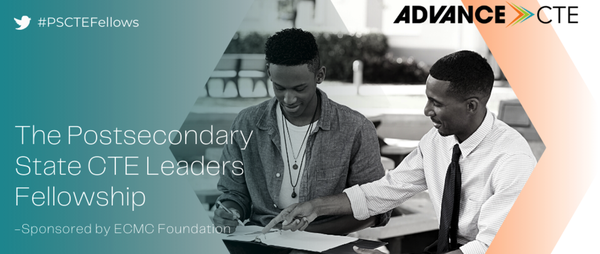Dr. Christina M. Kishimoto, Superintendent in Residence Discovery Education Prior to Dr. Kishimoto’s current role, she served as state superintendent of the Hawaii State Department of Education. Her education career spans over 25 years of equity-focused work across three states, in lower and higher education, including two previous CEO/superintendent roles in Gilbert, Arizona, and Hartford, Connecticut. Dr. Kishimoto has proudly served as board president of the Association of Latino Administrators and Superintendents, board member of the Council of Chief State School Officers, and is a national Chief for Change. Dr. Kishimoto is passionately committed to the power and promise of public education as a nexus of community advancement and economic growth through student voice, parent engagement, and a diverse portfolio of innovative school designs led by public educators. |
|
| This toolkit has resources for school district leaders, teachers, parent leaders, and school supporters that want to help increase confidence in and uptake of COVID-19 vaccines in their school communities, answer questions, and outline school guidance about COVID-19. It includes information from CDC and new, tailored materials from the HHS COVID-19 Public Education Campaign. |
| | Read More |
|
|
| Georgia State School Superintendent Richard Woods recently announced the establishment of a new Office of Rural Education and Innovation at the state Department of Education. The office is intended to provide a continued, cabinet-level voice for the needs of rural Georgians and their communities in K-12 education policy, particularly after the COVID-19 pandemic. "It is a top priority of my administration to strengthen and bring greater opportunities and economic prosperity to rural Georgia," Gov. Brian Kemp said. "The Georgia Department of Education's new Office of Rural Education and Innovation will support those efforts to renew and revitalize rural Georgia and ensure our state remains the best place to live, work, and raise a family." |
| | Read More |
|
|
 |
Advance CTE, with support from ECMC Foundation, is launching a new,17-month Fellowship dedicated to addressing a shortage of state postsecondary CTE leaders and equity barriers to leadership advancement for populations historically underrepresented in postsecondary CTE, particularly leaders of color. Every learner deserves to feel welcome, and have the supports and means to be successful in their journey to career and college success. To achieve this goal, learners need to see themselves in the educators and leaders that surround them. Yet, according to the 2020 membership survey, 93 percent of responding State CTE Directors identified as White.
The Postsecondary State CTE Leaders Fellowship at Advance CTE — Sponsored by ECMC Foundation (ECMCF) aims to remove barriers and provide comprehensive support for experienced professionals, particularly professionals of color, to pursue leadership paths in-state postsecondary CTE. Additional details about the Fellowship structure and eligibility can be found in the attached informational flyer. Our goal is to have a racially diverse applicant pool and for most of participating Advance CTE ECMCF Fellows to be professionals of color. Applications will be received through |
|
|
|
|  |
The COVID-19 pandemic has taken a tremendous toll on America’s students, families, educators, and schools. But with increased access to vaccinations for school staff and students 12 and older, proven virus prevention strategies, and unprecedented resources from the American Rescue Plan and other federal pandemic relief funds, America’s public schools have been steadily reopening for in-person learning, and students are returning to classrooms. We must continue that progress and provide every student, from every community and background, the opportunity to return to in-person learning full-time this fall. We must keep opening school doors and welcoming students back into classrooms. We must re-engage parents and families as they return to school and return to work, following more than a year of the pandemic. We must welcome families back in authentically, listen and seek to understand their concerns, and respond to their needs so that all families feel comfortable sending their students to school this fall. As we start the 2021-2022 school year, schools and communities must address gaps that were exacerbated by the pandemic and build our education system back better than before. |
| | Read More |
|
|
| In Case You Missed It: Listen Now to “Permanently Closing the Broadband Gap: Vital to America’s Digital Future” |
|  |
Connect Americans Now Virtual Discussion on the Urgency for Action to Support Broadband Deployment, Adoption & Digital Skills In case you missed it, Connect Americans Now (CAN) hosted a virtual discussion, “Permanently Closing the Broadband Gap: Vital to America’s Digital Future,” with a panel of leading voices in agriculture, education, health care, and technology earlier this week. The panel discussed the impact of the digital divide on American communities, both urban and rural, and what Congress can do to permanently close the broadband gap to ensure every American can participate in the full promise of the 21st-century digital economy.
If you want to hear more of what panelists had to say during this important discussion, you can listen to an audio recording of the live event HERE:
Christopher Lagoni, Ph.D., Executive Director, Indiana Small and Rural Schools Association “The first problem [during the pandemic] was making sure teachers had connectivity… Schools were scrambling to figure out how we ramp up — our teachers who are going to be tasked with delivering instruction and making sure he or she has a strong enough connection that they can host a Teams meeting, Zoom meeting, or whatever tool they were using to connect with students. The second issue, of course, was helping students connect – and that had all sorts of successes and failures across the nation.” “Ultimately for academic growth to occur, students need feedback… The student can’t grow at the pace they need to grow unless that teacher is with them, connecting with them, and providing rich feedback… We are decelerating the rate of student growth with less connectivity.” “Impact aid has been something that federal government has provided to rural schools to help with their purchasing power… their ability to buy devices or purchase broadband connectivity; and that impact aid has been dropping for a lot of years. All the way back to 1965… Purdue |
|
|
|
| Ryan is an active member in various Idaho education committees, designed to help increase student achievement and move Idaho education forward. His relationships with external partners and his team’s work with the Idaho Rural Education Association are focused on improving educational opportunities for all Idaho students. |
| | Read More |
|
|
| Linda Marsh was hired as the Interim Executive Director of the MSSA. Linda is the retiring Beaverhead County Superintendent and a former President of the Montana Association of County School Superintendents. Linda also served on the MSSA Board for a period of time. Linda will complete her tenure as county superintendent on July 31st and will assume the duties of MSSA Director on August 2, 2021. Congratulations to Linda Marsh on her retirement from the Beaverhead County Superintendent's position and upon assuming the Directorship of the MSSA. |
| | Read More |
|
|
|